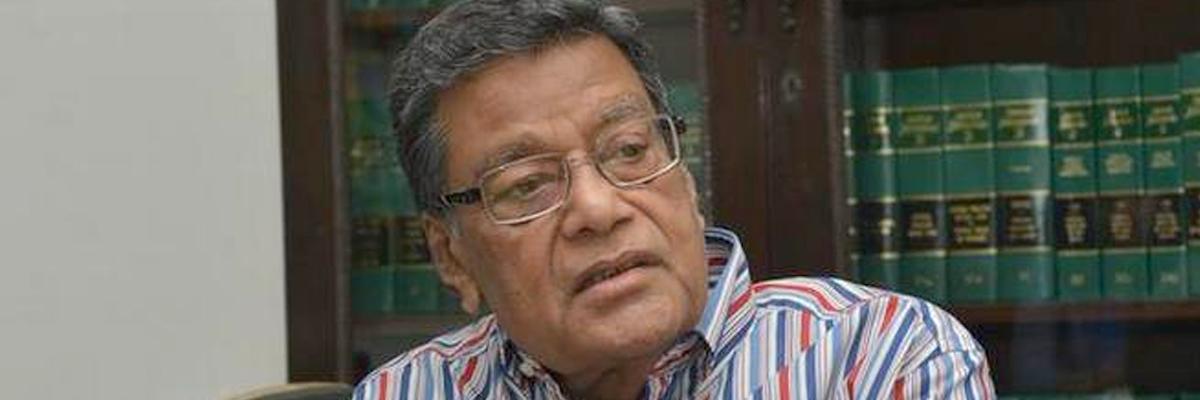Live
- Need to reintroduce country’s forgotten pride: Bhagwat
- Pant shatters Iyer's IPL auction record, sold to Super Giants for Rs 27 cr
- Yuva Sangeetha Sammelanam held
- Dharani proves a bane for 25K families across State
- Reckless, Dangerous Arms Race
- Russia needs a peace deal as it is running out of soldiers
- MyVoice: Views of our readers 25th November 2024
- Lack of planning, weak narrative behind MVA debacle
- UTF dist unit golden jubilee celebrations begin
- TSIC launches ‘Innovations 101’ coffee table book
Just In

Attorney General K K Venugopal on Saturday expressed concern over the Supreme Court relying on the concept of constitutional morality after it gave a 41 verdict in the Sabarimala case and said it might be used now for the purpose of testing laws
New Delhi: Attorney General K K Venugopal on Saturday expressed concern over the Supreme Court relying on the concept of constitutional morality after it gave a 4:1 verdict in the Sabarimala case and said it might be used now for the purpose of testing laws.
On September 28, a five-judge Constitution bench, headed by the then Chief Justice Dipak Misra, in a 4:1 verdict, had paved the way for entry of women of all ages into Sabarimala temple in Kerala, saying the ban amounted to gender discrimination.
While speaking at the Second J Dadachanji memorial debate, Venugopal hailed as "enlightened" the dissenting judgment given by top court judge Justice Indu Malhotra in the Sabarimala case.
"I am saying all this because of a fear that this new concept of constitutional morality may now be used for the purpose of testing laws," he said.
"In the Sabarimala case, the dissenting judge, Justice Indu Malhotra, relied upon constitutional morality and said that constitutional morality will require that every single individual would have the right to his own faith and nobody can interfere with it, the courts cannot interfere with what is the matter of faith," Venugopal said.
Referring to the majority judgement by four judges in the Sabarimala case, he said they had elaborately stressed on constitutional morality and said that constitutional morality was "equality and equality before the law means you cannot discriminate against a class of women".
"If a bench of the Supreme Court speak in two different voices, one says permit and other says no, then this is dangerous," he said, adding, that "no one knows where this fight will go and therefore, I am hoping that constitutional morality will die".
Venugopal said from the very beginning, there has been conflict a between Parliament and the executive on one hand, and judiciary on the other, and it was not proper for the court to believe that unless they interfere, the country is doomed.
"The Supreme Court has not been given the powers of legislation. If the Supreme Court tries to assert legislative powers, it would not be supremacy of the constitution, but supremacy of the Supreme Court of India which is wholly impermissible," said Venugopal.
He also referred to Article 142 of the Constitution, which deals with enforcement of decrees and orders of the top court.

© 2024 Hyderabad Media House Limited/The Hans India. All rights reserved. Powered by hocalwire.com







